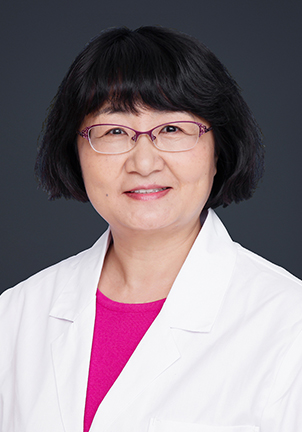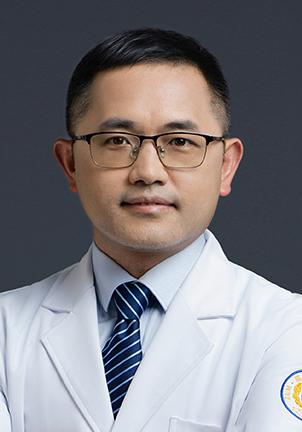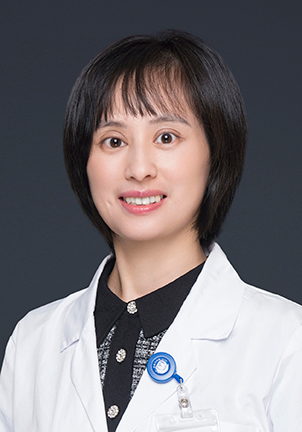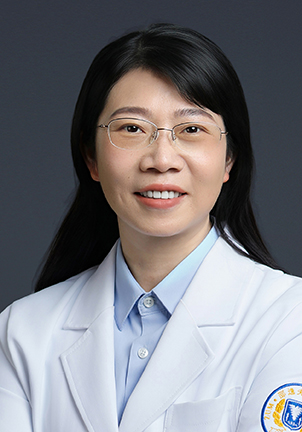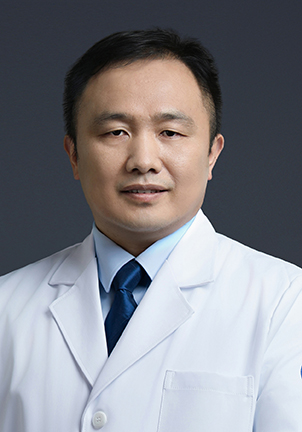Psychiatry
Overview
The Department of Psychiatry of SRRSH is a comprehensive department integrating clinical medicine, medical research, clinical teaching and a standardized training base of provincial and national resident doctors. It opened a mental health specialty outpatient clinic in November 1997 and set up 15 beds for patients with psychosomatic diseases. After the establishment of the Department of Psychiatry in 2011, it has developed rapidly and achieved outstanding success in all aspects of medical services, research, teaching, and management. Currently, the department has 42 specialized doctors, psychological therapy and evaluation measurement professionals, and medical researchers, including 11 with senior titles (including 3 professors, 2 clinical researchers of Zhejiang University, and 1 clinical associate researcher), 14 with intermediate titles, 10 with junior titles, 7 psychological measurement specialists, and a 22-member nursing team following advanced international concepts. There are 21 Ph.D. holders, 15 master's degree holders, and 6 bachelor's degree holders. There are 3 doctoral supervisors and 4 master's supervisors.
The Department of Psychiatry discharged 2037 patients in 2023, with a total of 85,000 outpatient visits and an average length of stay of 7.34 days in the hospital (among the top in the country). It is a responsible unit for doctoral and master's programs in psychiatry and mental health of Zhejiang University, and is in charge of the teaching of international students. It is the Zhejiang Branch Center of the National Clinical Medical Center, the National Standardized Training Base for Resident Doctors, the National Drug Clinical Trial Base, the National Health Commission "Brain Health and Cognitive Impairment Digital Diagnosis and Treatment Demonstration Center", the State Administration of Traditional Chinese Medicine "Brain Health and Cognitive Impairment Standardized Diagnosis and Treatment Demonstration Center", "Advanced Psychosomatic Medicine Integrated Diagnosis and Treatment Center", Psychosomatic Medicine Branch of the Chinese Medical Association, the Director Unit of the Standardized Training Quality Control Center of Zhejiang Province, and the Forensic Psychiatry Branch Center of the Zhejiang University Forensic Expert Center.
Technical advantages
The discipline focuses on the subspecialty of cognitive disorders, affective disorders, sleep disorders, schizophrenia, addictive behavior intervention and psychotherapy, and highlights the "early diagnosis of mental diseases, evaluation of biological/imaging markers, and individualized physical therapy technical intervention". Comprehensive use of advanced examination, evaluation and treatment methods PET, functional/structural magnetic resonance, near-infrared functional brain imaging, ERP electroencephalograph, pharmacogenomic analysis, non-invasive physical therapy (transcranial magnetic, transcranial electrical, music, etc.) and digital psychometry, VR digital treatment system] in clinical practice, to achieve the diagnosis of mental diseases "visible and tangible" and promote rapid patient recovery.
Academic status
Zhejiang Branch Center of the National Clinical Medical Center
National Standardized Training Base for Resident Doctors
National Drug Clinical Trial Base
National Health Commission "Brain Health and Cognitive Impairment Digital Diagnosis and Treatment Demonstration Center"
State Administration of Traditional Chinese Medicine "Brain Health and Cognitive Impairment Standardized Diagnosis and Treatment Demonstration Center"
Advanced Psychosomatic Medicine Integrated Diagnosis and Treatment Center
Psychosomatic Medicine Branch of the Chinese Medical Association,
Director Unit of the Standardized Training Quality Control Center of Zhejiang Province
Forensic Psychiatry Branch Center of the Zhejiang University Forensic Expert Center
Research achievements
The department has established five clinical research teams for cognitive disorders, affective disorders, sleep disorders, schizophrenia, and addictive behavior intervention. With the characteristics of "early diagnosis and biological technology assessment", and the development goal of reaching domestically leading and approaching the international advanced level, various advanced laboratory inspection technologies have been applied to clinical practice, which makes the diagnosis and treatment of psychiatric diseases "visible and tangible" and promotes the rapid recovery of patients. In the past 5 years, it has obtained 7 projects funded by the National Natural Science Foundation (1 key project of the Regional Fund), 1 young scientist project of Science and Technology Innovation 2030- "Brain Science and Brain-like Research", 3 projects and topics of the National Key Research and Development Plan, 1 key research and development plan project of Zhejiang Province, 1 major project funded by the Natural Science Foundation of Zhejiang Province, etc.
The cognitive (memory) impairment research team is an important base with distinctive characteristics in China. It developed the first computer aided mild cognitive impairment screening scale in China, and carried out the study of transcranial magnetic stimulation in the treatment of Alzheimer's disease based on MRI functional connection. A complete set of standardized screening, diagnosis and intervention procedures for dementia was established. The team participated in 16 international and domestic multi-center phase I, II and III clinical drug trials; obtained 2 national invention patents, and 2 software patents, and applied for 2 invention patents.
The affective disorders research team is a core member of the National Clinical Medical Center for Mental Disorders (Beijing Anding Hospital). In China, neurofunctional image analysis/localization combined with neuropsychometric technology and biological sample analysis were used earlier to evaluate the efficacy and prognosis of depressive disorder and bipolar disorder, and guide the optimization of clinical practice. In recent years, combined with repeated transcranial magnetic stimulation therapy, a feasible physiotherapy scheme to improve the curative effect of refractory depression has been explored. The team participated in multiple multi-center clinical drug trials. In 2022, it was a key member of the Science and Technology Innovation 2030–"Brain Science and Brain-Like Research" major project "Prospective Clinical Cohort Study of Depression".
The sleep disorders research team took the lead in establishing a sleep laboratory with the highest level of technical support in Zhejiang province, and established the SRRSH Sleep Center in cooperation with the departments of Neurology, Respiratory Therapy, Otolaryngology (ENT)/Head and Neck Surgery. The prospective study of REM sleep behavior disorder and insomnia was carried out according to the characteristics of the discipline. The team has carried out research on cognitive behavioral therapy such as stimulation control and participated in a number of domestic multi-center clinical drug/device trials.
The schizophrenia research team focuses on the whole-course intervention and individualized treatment of schizophrenia and carries out clinical and basic research on early high-risk groups, first-episode schizophrenia and refractory schizophrenia. The team has hosted 3 projects funded by the National Natural Science Foundation. Good curative effects in early intervention and individualized treatment have been achieved. In 2021, it was successfully approved as the key special project of the National Key Research and Development Plan "Intergovernmental International Science and Technology Innovation Cooperation" and "Research on Schizophrenia Classification Based on Artificial Intelligence".
The addiction medicine research team focuses on the research of the mechanism of substance addiction and the development and validation of individualized intervention methods. The research team was the first to report brain structural and functional damage caused by chronic ketamine use, developed an innovative comprehensive smoking cessation approach based on SMS, WeChat and smart APP, compiled scientific smoking cessation training books and operation manuals, and conducted smoking cessation training for healthcare workers. In 2022, "Research on drug addiction and relapse mechanism based on multi-modal neuroimaging and multi-omics combined technology" was supported by the key project of the Regional Joint Fund of the National Natural Science Foundation, and "Research on brain mechanism, diagnosis and early prevention of children and adolescents' game addiction" was awarded the Science and Technology Innovation 2030 "Brain Science and Brain-like Research" Young Scientists project.










